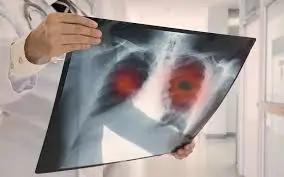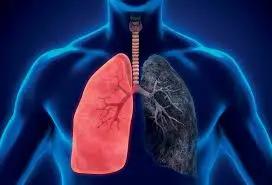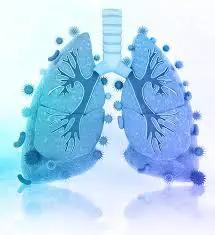
Asbestosis is a chronic lung condition affecting individuals exposed to the mineral asbestos. As a progressive condition, it poses significant challenges in terms of management and treatment. In this article, we will look into the details of asbestosis, its causes, symptoms, diagnosis, and the treatments available, to give you a clear understanding of whether asbestosis can be cured and the measures that can be taken to reduce its impact on one’s health.
Understanding asbestosis
Asbestosis is a pulmonary fibrosis condition caused by asbestos exposure due to inhalation of asbestos fibers over an extended period. These microscopic fibres become lodged in the lungs, leading to scarring and stiffening of the lung tissue, a process known as fibrosis. As the disease progresses, the lungs become less flexible, making it increasingly difficult for the individual to breathe.
What is asbestos?
Asbestos is a naturally occurring mineral that was widely used in various industries during the 20th century due to its heat-resistant and insulating properties. It was commonly found in building materials, such as insulation, roofing, and floor tiles. However, the use of asbestos was eventually banned in many countries due to the growing awareness of its harmful effects on human health.
Who is at risk?
Individuals who have been exposed to asbestos, particularly those who worked in industries where asbestos was prevalent, are at the highest risk of developing asbestosis. This includes construction workers, miners, shipyard workers, and individuals involved in the removal or demolition of asbestos-containing materials. Secondhand exposure, such as living with someone who worked with asbestos, can also increase the risk of developing the disease.
Symptoms of asbestosis
The symptoms of asbestosis can take several decades to manifest, with the first signs typically appearing 15 to 20 years after the initial asbestos exposure. The primary symptom is breathlessness, which often worsens with physical activity. Other common symptoms include a persistent cough, tiredness, chest pain, and unexplained weight loss.
Diagnosis
Diagnosing asbestosis can be complex, as the symptoms can be similar to those of other respiratory conditions. Healthcare providers typically begin by taking a detailed medical history and inquiring about the individual’s occupational and environmental exposure to asbestos. Physical examinations, including the use of a stethoscope to listen for a crackling sound in the lungs, are also conducted.
To confirm the diagnosis, healthcare providers may order a series of diagnostic tests, such as:
- Chest x-rays: These imaging scans can reveal the characteristic “honeycomb” pattern of scarring in the lungs associated with asbestosis
- CT Scans: More advanced imaging techniques, such as CT scans, can provide a more detailed view of the lungs and help detect asbestosis in its early stages
- Lung function tests: These tests measure the individual’s lung capacity and airflow, which are often impaired in individuals with asbestosis
- Biopsy: In some cases, a small sample of lung tissue may be obtained through a procedure called a biopsy to confirm the presence of asbestos fibers
Can asbestosis be cured?
The short answer is no; there is no cure for asbestosis. The damage caused by the inhalation of asbestos fibers is irreversible, and the scarring of the lung tissue cannot be undone. However, there are various treatment options and management strategies that can help slow the progression of the disease and alleviate its symptoms.
Treatment
The primary goals of asbestosis treatment are to manage the symptoms, prevent further lung damage, and reduce the risk of complications. The following treatment approaches are commonly employed:
- Oxygen therapy: Supplemental oxygen can help improve breathing and alleviate the shortness of breath experienced by individuals with asbestosis
- Pulmonary rehabilitation: Rehabilitation programs that combine exercise, education, and lifestyle modifications can help improve the individual’s overall quality of life and respiratory function
- Medications: While there are no medications that can reverse the underlying lung damage, certain drugs, such as anti-inflammatory agents or bronchodilators, may be prescribed to manage symptoms and reduce the risk of complications
- Lung transplant: In severe cases, a lung transplant may be considered as a last resort
Preventing further exposure
One of the most critical aspects of managing asbestosis is preventing any further asbestos exposure. This includes:
- Avoiding asbestos-containing materials: Individuals with asbestosis should steer clear of any building materials or products that may contain asbestos, as any disturbance or damage to these materials can release harmful fibres into the air
- Proper asbestos removal: If asbestos-containing materials need to be removed, it should be done by trained professionals who follow strict safety protocols to minimise the risk of exposure
- Quit smoking: Smoking significantly increases the risk of lung cancer and other respiratory complications in individuals with asbestosis, so quitting is highly recommended
- Vaccination: Individuals with asbestosis are at a higher risk of developing respiratory infections, such as pneumonia and influenza. Vaccination against these illnesses can help reduce the risk of complications
Outlook
The outlook for individuals with asbestosis largely depends on the severity of the disease, how quickly the condition progresses and the extent of lung damage at the time of diagnosis. In general, the average life expectancy for individuals with asbestosis is around 10 years after diagnosis, although this can vary significantly depending on individual circumstances.
The progression of asbestosis can be slowed down by adhering to the recommended treatment plan and avoiding further exposure to asbestos. Regular monitoring and follow-up with healthcare providers are crucial to managing the disease and maintaining the best possible quality of life.
Support
Living with asbestosis can be physically and emotionally challenging, but there are resources and support systems available to help individuals and their families navigate this journey.
Support groups and counselling
Joining a support group, either in-person or online, can provide a valuable outlet for individuals with asbestosis to share their experiences, learn from others, and receive emotional support. Additionally, seeking the guidance of a mental health professional can help individuals cope with the psychological and emotional impact of the disease.
Legal assistance
Individuals with asbestosis may be eligible for various forms of financial and legal assistance, such as workers’ compensation or personal injury claims. Reaching out to organisations that specialise in asbestos-related diseases can help connect individuals with the resources and support they need.
Conclusion
Asbestosis is a chronic and debilitating lung disease that cannot be cured, but its progression can be managed through a combination of medical interventions, lifestyle modifications, and prevention strategies. While the prognosis for individuals with asbestosis may vary, ongoing research and advancements in treatment approaches offer hope for improved quality of life and better outcomes for those affected by this devastating condition.
Sources
- Treating and Managing Asbestosis – American Lung Association
- Asbestosis: Causes, Symptoms, Diagnosis & Treatment
- Asbestosis – Diagnosis & treatment – Mayo Clinic
- Asbestosis – symptoms, causes and treatment – healthdirect
Medical Disclaimer
NowPatient has taken all reasonable steps to ensure that all material is factually accurate, complete, and current. However, the knowledge and experience of a qualified healthcare professional should always be sought after instead of using the information on this page. Before taking any drug, you should always speak to your doctor or another qualified healthcare provider.
The information provided here about medications is subject to change and is not meant to include all uses, precautions, warnings, directions, drug interactions, allergic reactions, or negative effects. The absence of warnings or other information for a particular medication does not imply that the medication or medication combination is appropriate for all patients or for all possible purposes.








